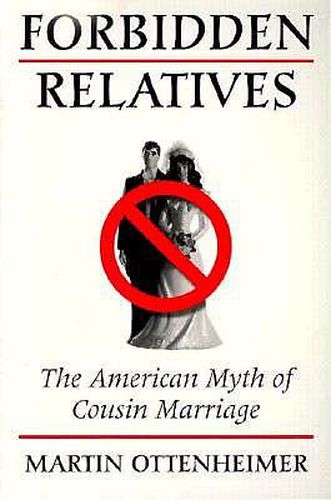Readings Newsletter
Become a Readings Member to make your shopping experience even easier.
Sign in or sign up for free!
You’re not far away from qualifying for FREE standard shipping within Australia
You’ve qualified for FREE standard shipping within Australia
The cart is loading…






Forbidden Relatives challenges the belief–widely held in the United States–that legislation against marriage between first cousins is based on a biological risk to offspring. In fact, its author maintains, the U.S. prohibition against such unions originated largely because of the belief that it would promote more rapid assimilation of immigrants.
A social anthropologist, Martin Ottenheimer questioned U.S. laws against cousin marriage because his international research into marriage patterns showed no European countries prohibit such unions. He examines the historical development of U.S. laws governing marriage, contrasts them with European laws, and analyzes the genetic implications of first cousin marriage. Modern genetic evidence, Ottenheimer says, doesn’t support the concept that children of these unions are at any special risk.
Ottenheimer’s book, the only volume available that deals with kinship in this way, will challenge readers and give them much to consider and discuss.
$9.00 standard shipping within Australia
FREE standard shipping within Australia for orders over $100.00
Express & International shipping calculated at checkout
Stock availability can be subject to change without notice. We recommend calling the shop or contacting our online team to check availability of low stock items. Please see our Shopping Online page for more details.
Forbidden Relatives challenges the belief–widely held in the United States–that legislation against marriage between first cousins is based on a biological risk to offspring. In fact, its author maintains, the U.S. prohibition against such unions originated largely because of the belief that it would promote more rapid assimilation of immigrants.
A social anthropologist, Martin Ottenheimer questioned U.S. laws against cousin marriage because his international research into marriage patterns showed no European countries prohibit such unions. He examines the historical development of U.S. laws governing marriage, contrasts them with European laws, and analyzes the genetic implications of first cousin marriage. Modern genetic evidence, Ottenheimer says, doesn’t support the concept that children of these unions are at any special risk.
Ottenheimer’s book, the only volume available that deals with kinship in this way, will challenge readers and give them much to consider and discuss.